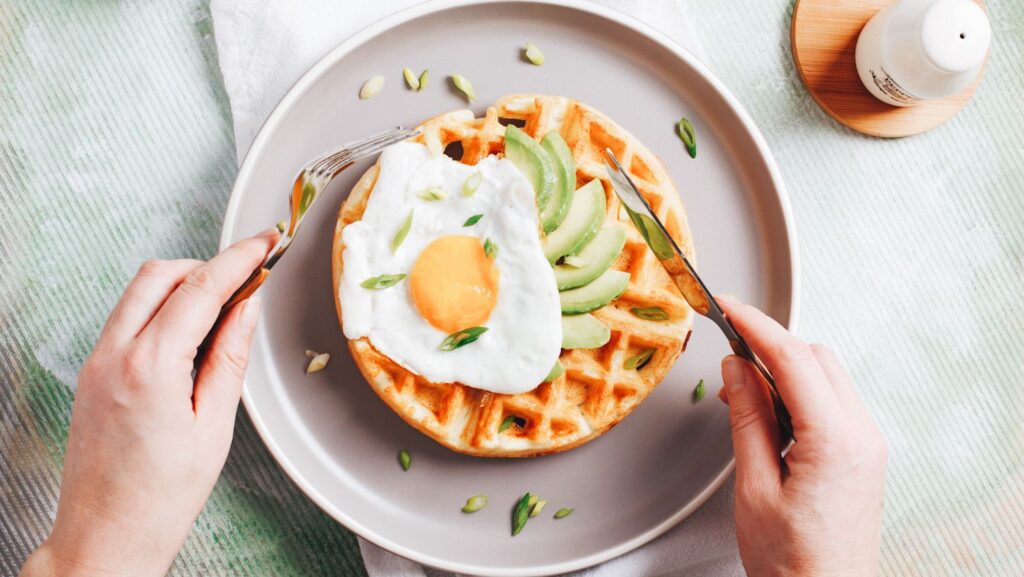At one point, vegan options for eggs looked like tofu scramble, chickpea flour omelettes, and baked goods made with ground-up flax seeds, chia seeds, or fruit puree to bind everything together. But, oh, how the times have changed. Now, we have vegan eggs that come in a bottle and are made from mung bean protein, thanks to California-based food tech Eat Just. And innovations in food tech are taking vegan eggs beyond the scramble-able.
Companies are developing plant-based hard-boiled eggs, whole eggs that can be cracked open, and even animal-free eggs made using the age-old technique of fermentation. According to the Good Food Institute, this is all happening due to demand driven by a number of reasons, including environmental sustainability, health, improved food safety, allergen reduction, and more. While the options for vegan eggs are limited compared to analogs for meat and milk, companies have made impressive strides when it comes to creating a plant-based version of the favorite breakfast food. Here are the most ingenious, coolest, and fascinating takes on eggs so far:


